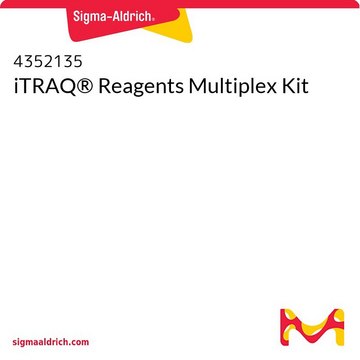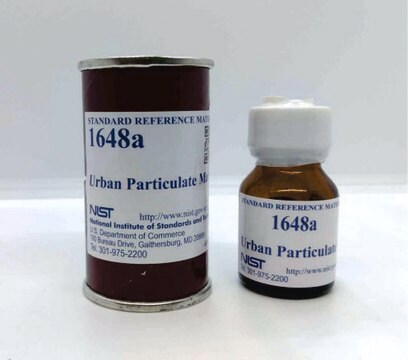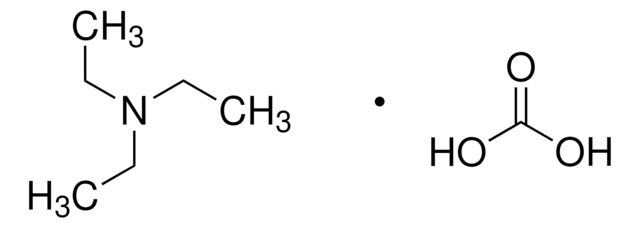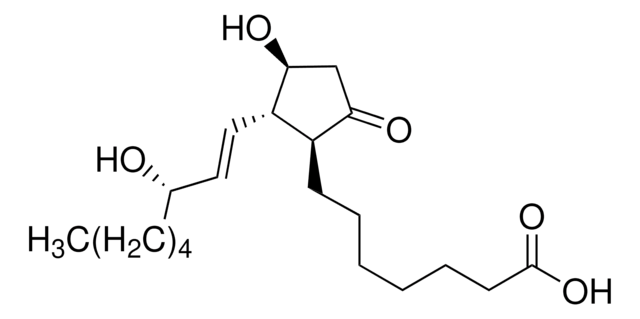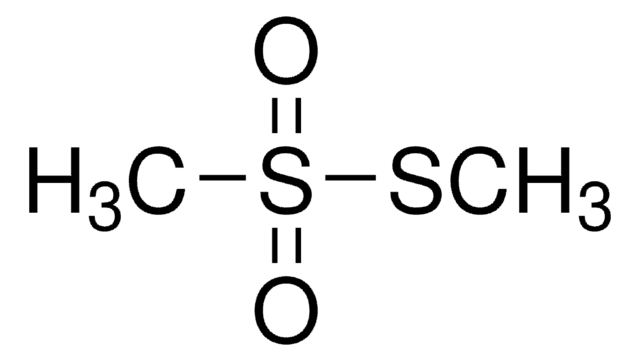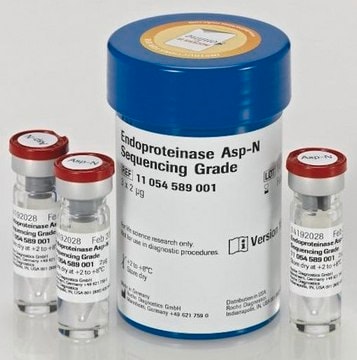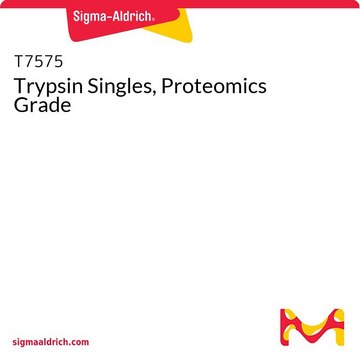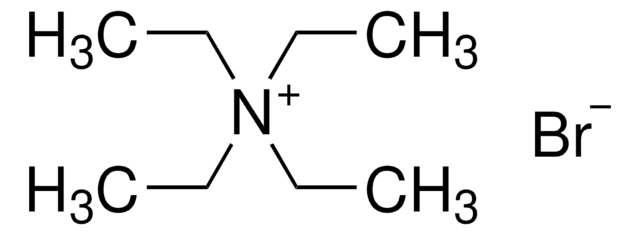4381662
iTRAQ® Reagent - 8PLEX One Assay Kit
Sinonimo/i:
isobaric tags for relative and absolute quantitation
About This Item
Prodotti consigliati
Temperatura di conservazione
−20°C
Cerchi prodotti simili? Visita Guida al confronto tra prodotti
Descrizione generale
This kit contains the reagents in the equivalent SCIEX iChemistry® product number 4390811.
Applicazioni
- of digested total protein sample in mustard sprouts
- of the total protein in broccoli sprouts
- of the desalted peptides from different plants/intact chloroplasts
Caratteristiche e vantaggi
- Simultaneously identify and quantify proteins from multiple samples
- Expands protein and proteome coverage by labeling all peptides, including those with post-translational modifications (PTMs)
- Increases confidence in identification and quantitation from MS/MS spectra by tagging multiple peptides per protein
- Increases throughput and confidence in results for protein biomarker discovery studies
- Offers a simple workflow without sample fractionation for reduced-complexity samples, such as affinity pull-downs
- Provides the flexibility to multiplex up to eight different biological samples simultaneously in a single experiment
- Fully supported by ProteinPilot Software on all SCIEX proteomics LC/MS/MS platforms
Risultati analitici
To view the Chemistry Quick Reference Card for the iTRAQ Reagents, please visit this Chemistry Quick Reference Card link.
Note legali
Avvertenze
Danger
Indicazioni di pericolo
Classi di pericolo
Acute Tox. 4 Dermal - Acute Tox. 4 Inhalation - Acute Tox. 4 Oral - Eye Irrit. 2 - Flam. Liq. 2 - Skin Irrit. 2 - STOT SE 3
Organi bersaglio
Central nervous system
Codice della classe di stoccaggio
3 - Flammable liquids
Classe di pericolosità dell'acqua (WGK)
WGK 3
Punto d’infiammabilità (°C)
2.0 °C - closed cup
Certificati d'analisi (COA)
Cerca il Certificati d'analisi (COA) digitando il numero di lotto/batch corrispondente. I numeri di lotto o di batch sono stampati sull'etichetta dei prodotti dopo la parola ‘Lotto’ o ‘Batch’.
Possiedi già questo prodotto?
I documenti relativi ai prodotti acquistati recentemente sono disponibili nell’Archivio dei documenti.
I clienti hanno visto anche
Il team dei nostri ricercatori vanta grande esperienza in tutte le aree della ricerca quali Life Science, scienza dei materiali, sintesi chimica, cromatografia, discipline analitiche, ecc..
Contatta l'Assistenza Tecnica.
